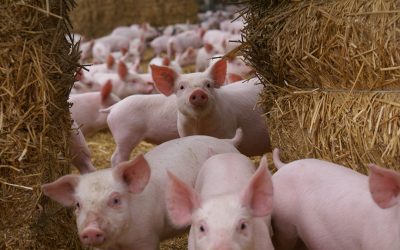Unbeatable nature
Perhaps the activists consider it a victory, but I rather see it as a failure – corn that was altered by Monsanto to withstand the corn borer plague is losing its power. In the US state of Iowa the mono-culture for the first time has shown not to be the ideal crop management system and the insects that were supposed to be stopped have build resistance to the genetically modified plant.
Iowa State University entomologist Aaron Gassmann’s discovered that western corn rootworms in four northeast Iowa fields have evolved to resist the natural pesticide made by Monsanto’s corn plant. The finding could encourage some farmers to use stronger synthetic insecticides on their fields, which would be a loss for the farmers and the environment.
Gassmann confirmed that his findings were isolated cases, but he also noticed that it is an early warning that management practices need to change. Perhaps crop farmers could take an example from broiler farmers, who prudently use coccidiostats and in a proven schedule to avoid building up resistance in the parasites. Coccidiostats are also discussed in Europe in the context of resistance and antibiotics – which they are not – but for the time being are left alone.
The finding of Gassmann speeds up the race among crop biotechnology rivals to locate the next generation of genes that can protect plants from insects. Scientists at Monsanto and Syngenta are already researching how to use a medical breakthrough called RNA interference to make crops deadly for insects to eat. If this works, a bug munching on such a plant could ingest a genetic code that turns off one of its essential genes. That would be nice progress, but would also be nice feed for activists again.
Lazy farmers
When crop protection is made too simple, farmers become lazy. They rely too heavy on the technology and violate the rule in pest management of crop rotation. Growing the same crop year after year is an invitation to the bugs to adapt. But not only bugs, also weeds learn to adapt.
Roundup Ready corn can withstand Roundup herbicide, a glyphosate-based chemical known for its ability to kill almost anything green. These GM-seeds made it so convenient for farmers to spray Roundup that many farmers stopped using other weed killers. According to scientists, superweeds immune to Roundup have spread to millions of acres in more than 20 states in the South and Midwest of the US.
Bug refuge
In the US it is required by farmers who grow GM-crops to take certain steps aimed at preventing insects from developing resistance. Farmers are told to create a refuge for the bugs by planting non-modified corn in part of their fields. The refuge, which can be as much as 20% of a farmer’s field, is supposed to reduce the chances that two toxin-resistant bugs mate and pass along that trait.
The US Environmental Protection Agency is thinking of lowering this requirement to 5% of the area planted, when variety of corn is used that contains two insect repellents. But with the findings in Iowa it is perhaps better to rethink the measure. No matter what we do and how we do it, nature always has its answer, which can be positive or negative, depending on what side you’re on.











